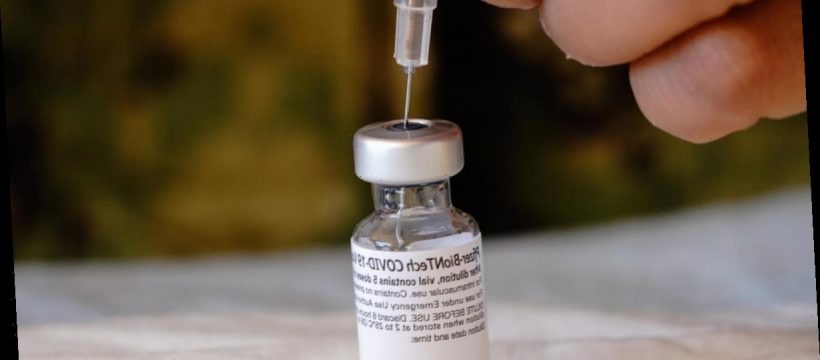The Biden administration is rejecting calls from some states to buy COVID-19 vaccine doses directly from Pfizer, as governors hunt for ways to supplement their limited supply of shots.
The divide on that question counts among the early pandemic challenges facing the 46th president, as his team tackles a nationwide vaccine effort that has progressed unevenly in the face of overwhelming demand.
“We need to have a national approach to vaccinations, and must ensure states aren’t competing against each other like they did with PPE, ventilators, and tests,” spokesperson T.J. Ducklo said in a statement.
This week, New York joined a handful of states pursuing the idea of buying doses beyond the supply rationed out by the federal government. New York City’s mayor warned Tuesday that vaccination sites in the city were on track to run out of doses this week, with appointments being canceled for thousands of people hoping to be immunized.
“Because you are not bound by commitments that Moderna made as part of Operation Warp Speed, I am requesting that the State of New York be permitted to directly purchase doses from you,” New York Governor Andrew Cuomo, a Democrat, wrote in a letter to Pfizer’s CEO.
But the pharmaceutical manufacturer was quick to shoot down the request, with a spokesperson saying the company would need permission from federal authorities to sell doses directly to states under the Food and Drug Administration’s emergency use authorization for their vaccine.
“The states feel like they don’t know what’s going to happen. And so to iron out that uncertainty, they say, ‘Well, I’ll just go get our own supply.’ But of course, that means if you get your own supplies, somebody else is even farther back than they were before,” said Michael Osterholm, director of the Center for Infectious Disease Research and Policy at the University of Minnesota.
After weeks of frustration over a backlog of unused doses piling up in some parts of the country, while jurisdictions elsewhere complained of unpredictable shipments too small to meet a flood of demand, the outgoing Trump administration moved earlier this month to change how doses were allocated.
Distributed initially based on population, which Operation Warp Speed officials in November touted as “the fairest approach,” the Trump administration said it would instead factor in how fast states had been using up the vaccine they received, as well as “the size of the 65 and over population.”
“With the case counts we face now, there is absolutely no time to waste: We need doses going to where they’ll be administered quickly, and where they’ll protect the most vulnerable,” then-Health Secretary Alex Azar said.
But Mr. Biden’s team soon voiced skepticism of moves to “punish” states and signaled they plan to block the change. In a document released Wednesday laying out their “national strategy” to combat COVID-19, the Biden administration pledged to provide “clear, consistent projections” of future allocations and vowed to accelerate vaccine manufacturing with the Defense Production Act.
“We didn’t really even hear about the possibility of some states being punished for not moving vaccines fast enough until the very end of our tenure. The message was, initially, that this would be equitably distributed,” said Osterholm, who served as a key COVID-19 adviser to Mr. Biden’s transition effort.
Connecticut officials said Tuesday they disagreed with the request from neighboring New York, arguing that plans by the incoming Biden administration to continue coordinating distribution “makes a lot of sense.”
“We had states competing with each other for PPE back in the Spring. That was a disaster that drove up costs and unfair distribution of the masks and gowns,” said Connecticut Governor Ned Lamont, a Democrat.
A little over 14 million have received at least their first dose of a COVID-19 vaccine since the shots were authorized late last year, and 2 million have received both doses, according to figures from the Centers for Disease Control and Prevention. More than 35 million doses have been distributed.
“Since the beginning of this pandemic, the Trump Administration has failed to put forward a clear national strategy. And because of that, states have been left to develop our own plans,” Bobby Leddy, deputy press secretary for Michigan Governor Gretchen Whitmer, said in an email.
The governors of Michigan, Minnesota, and Wisconsin had called on the Trump administration to grant them permission to buy doses directly in a letter last week, but appeared this week to walk back their request.
“With a new incoming Biden-Harris Administration, we are confident that President Joe Biden will have a clear national strategy that is based in data and science to help our nation overcome this health crisis,” said Leddy.
Source: Read Full Article
